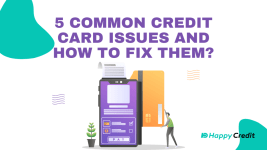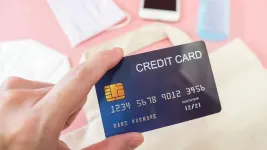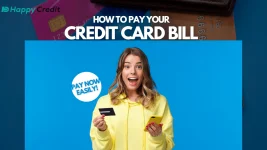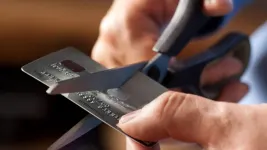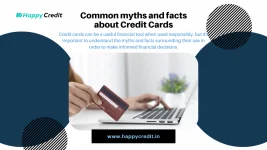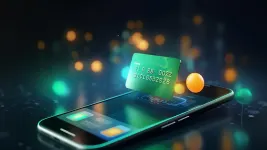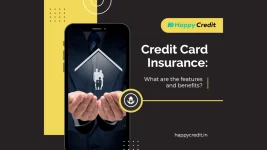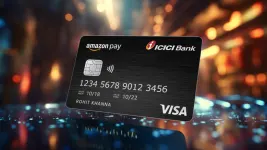Should I Pay Off My Credit Card Debt Immediately or Over Time? [August, 2024]
Maintaining a credit card with a good credit score is not as easy as getting one – and when there are many myths revolving around credit card maintenance, making the right move every time can get tricky. According to some experts, carrying a balance on a credit card is very useful for maintaining a good credit score. That’s why they suggest paying off credit card debts slowly.

But this advice does not apply to all cases – clearing credit card debts early is always a good idea to keep your credit score in good shape and avoid paying additional money as interest. If you are wondering how to manage your credit card debts the right way, you’ve come to the right place because, in this article, we’ll be discussing all credit card payment strategies and what you can do at times when you cannot pay off the credit card debts instantly.
Does Paying Off Credit Card Debts Slowly Help With Credit Scores?
There’s a credit card myth that says carrying a credit card balance is very helpful in improving your credit scores. While this myth applies in some cases, most people are unlikely to benefit from it because high credit card balances imply high credit utilisation, which hurts a user’s credit standing later on. The thumb rule is to keep your credit utilisation ratio under 30% to keep your credit score safe. Financial experts recommend keeping the credit utilisation ratio under 7% to have the best credit score.
Methods to Pay Off Credit Card Debt
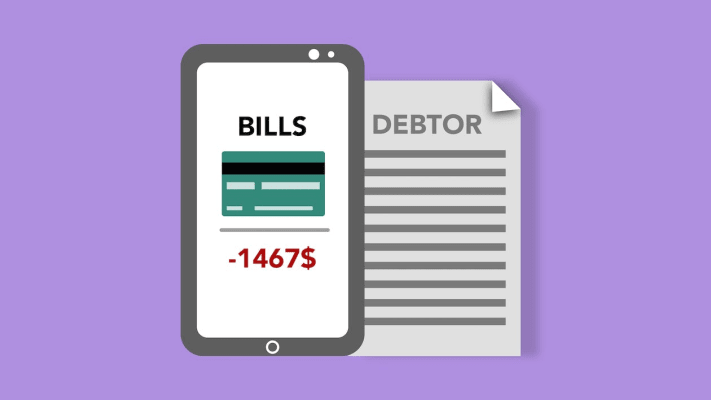
By this time, you must know that it’s best to have zero credit card debt. But only in a perfect world is it possible to reach that goal every time. So, don’t be discouraged if making payments on time seems impossible sometimes. By planning all your budgeting and spending, you can pay down your debts just in time and avoid ending up like the average consumer with a lot of debt.
Follow the given two strategies to pay off your credit card debts the right way:
The Gradual/Snowball Method
Even though getting rid of debt as fast as possible is always a good idea, it’s not always possible to remain motivated when your credit card has a high balance. If that’s the case, the snowball method might be the best choice for you. In the snowball method, you put some extra money toward the credit card with the lowest balance and continue making minimum payments to the rest of the credit cards you hold. Once the card is paid off, apply the additional funds to the card with the next lowest balance and continue the process. Even though you will be paying more interest initially, using this method, the progress can be seen by paying off the credit card sooner, which will work as an encouragement to keep you going.
Debt Avalanche Method
This method of paying debts on a credit card helps customers save a lot of money on interest. All you have to do is put a little extra money on your card with the highest APR after making the minimum payments on your credit card. After you pay off the amount, move to the card with the highest APR to decrease the amount to be paid by reducing the interest amount you have accrued.
Making Minimum Payments: How It Can Cost You
Paying on time each month is a great practice that helps your credit score remain unaffected. Late fee payment can get you in a lot of trouble – you might have to pay an additional penalty fee or a high amount as interest later. If you make only the minimum monthly payments, you will pay interest on the remaining balance in the next billing period. The majority of credit cards charge compound rates of interest, which makes credit card debts snowball fast. As a result, it will take years to repay the entire amount.
Top Tips for To Pay Off Credit Card Debts
Credit cards can improve your lifestyle if you use them correctly – you get the money during emergencies and tons of other benefits along with the credit card. However, if you don’t use your credit card wisely, you might face some bad consequences. To ensure that such incidents never occur, utilise the tips given below.
Make a Budget and Track Your Spending
To ensure you never lack money to pay off your credit card debts, make a budget and strictly maintain it throughout the month. By tracking your monthly expenses, you clearly know where your money goes and how to spend it mindfully. This tip applies even if you don’t have credit card debt – spending money carefully is the first step to financial freedom.
Pay Several Times Each Month
Apart from tracking your spending and budgeting each month, many customers find paying off their debts several times each month quite helpful. This way, you can get a clear idea of how much you should be spending to avoid debt, and it also helps you budget mindfully. Additionally, this helps improve your credit score.
Create a Debt Elimination Plan
If you are already in credit card debt, you know it takes time for your current credit card balance to chip away. Creating a debt-elimination plan is a great way to speed up the process. Make sure to do all the necessary research before you move forward with this tip, and talk to a consultant if needed.
Conclusion
Even if you can’t pay off your credit card immediately after you borrow funds, make sure you maintain a good payment history. It might take some time to reach your financial goal, but if you’re consistent and committed, your credit and bank account will thank you later.
FAQs
Q. How can I pay my credit card bills?
Most credit card companies accept various methods of payments from their customers when they are willing to repay credit card debt. Cheque, online bill pay, and money transfer are the best three payment methods that almost all credit cards company accept.
Q. Should I pay my credit card dues in full?
Experts highly recommend paying the full due amount of credit card debt before each month’s due date. If you fail, you might need to pay additional interest later or even a penalty fee to the credit card company.
Q. What is the 15/3 rule?
In simple words, the 15/3 rule is a credit card payment strategy that requires you to make payments twice each month to your credit card company. You must complete the first payment 15 days before your statement is due and the second payment three days before the due date.
Q. Should you pay off credit card bills as soon as possible?
In most cases, paying off your credit card debt slowly is not ideal and can cost you a lot of money later on. It’s always better to pay off your credit card debt as quickly as possible because this way, you get to save the money that was going to go in as interest otherwise and keep your credit in great shape.

Product prices and availability are subject to change. Any price and availability information displayed on merchant's site at the time of purchase will apply to the purchase of these products. HappyCredit is a participant in the Amazon Services LLC Associates Program, an affiliate advertising program. As part of this program, we may earn commission from qualifying purchases made through the affiliate links provided on this website. We only promote products on Amazon that we genuinely believe are of high quality and value to our audience. The inclusion of affiliate links does not influence our editorial content or product recommendations. Our primary goal is to provide useful information and help you make informed purchasing decisions.
Certain portions of the text in this article might have been created using AI tools and subsequently edited by the author to improve the overall quality and clarity of the content for readers.
![Should I Pay Off My Credit Card Debt Immediately or Over Time? [August, 2024] Should I Pay Off My Credit Card Debt Immediately or Over Time? [August, 2024]](https://happycredit.in/cloudinary_opt/blog/opt-kza84.webp)
